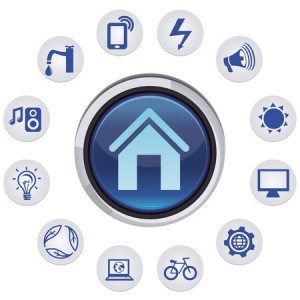How Technology Is Changing The Housing Industry

How We Acquire Homes In The 21stCentury
The traditional process of finding and purchasing a home involved a lot of legwork. Not only did it require lots of effort from a dedicated real estate agent, but much of the buyer’s time would be wrapped up in the deal, too. It was an arduous method that could take months to complete.
Despite the reluctance of some, technology is changing things for the better. Instead of taking the time to visit different neighborhoods and attend various open houses, prospective buyers can review most of their options online. Not only does this give new customers the chance to view homes they might have otherwise missed, but real estate agents can also utilize the internet to maximize the exposure of their properties and minimize their overall time on the market.
Modern technology will also lead to an increased need for local market research. With so many options available, realtors will be pushed to narrow down the field and locate better properties in the first place. Improved tenant-screening technology, which will help property owners maximize their profitability in the new market, will also see increased usage.
How We Enjoy Technology Inside Our Homes
While it’s easy to see how technology has enhanced the process of searching for a home that’s already on the market, many buyers don’t realize the level of sophistication in newly built homes. The advent of the smart home, which lets appliances communicate with you as well as each other, is redefining how we live in our homes on a day-to-day basis.
Even student housing is benefitting from recent technological advancements. Numerous websites now exist to make life easier on behalf of college students all across the nation, including mobile apps that streamline processes like paying rent and requesting special service or maintenance. Advanced security measures such as near field communication (NFC) and radio frequency identification (RFID) are also improving campus safety nationwide.
But there is a downside to all of this new technology. In densely populated areas like San Francisco, some professionals attribute the skyrocketing cost of rent to the sudden proliferation of next-gen hardware and software. The fact that the southern side of the city is home to Silicon Valley isn’t making matters any better, but local proponents of technology are optimistic about the city’s future. Instead of shying away from the current digital revolution, some are committed to embracing these breakthroughs and using them to better the community as a whole.
How We Build New Homes
The way we build new homes is also seeing new technological advancements. Instead of visiting potential sites and surveying property by hand, builders are already using aerial drones to determine the feasibility of future projects before setting foot on the ground. They are also suitable for remote job site monitoring and inspection, which saves project managers and superintendents the hassle of visiting multiple sites on a daily basis.
Construction materials are becoming less hazardous and more eco-friendly. Innovative builders are trying out new and experimental structures, designs and floor plans that are all meant to reduce the carbon footprint of the modern home. Innovations in renewable energy and waste management are also increasingly common in the current housing industry.
How We’re Embracing The Modern Smart Home
Most consumers are familiar with the concept of the modern smart phone — you probably have one in your pocket or within arm’s reach right now. It’s a breakthrough that has revolutionized daily life as we know it, and many are expecting the same from current and next-gen smart homes that have hit the market as of late. Promising greater accessibility, connectivity and energy efficiency, the smart home is expected to have a significant impact on the future of housing in the U.S. and across the world.
Source: techmalak.com















 Accessibility
Accessibility